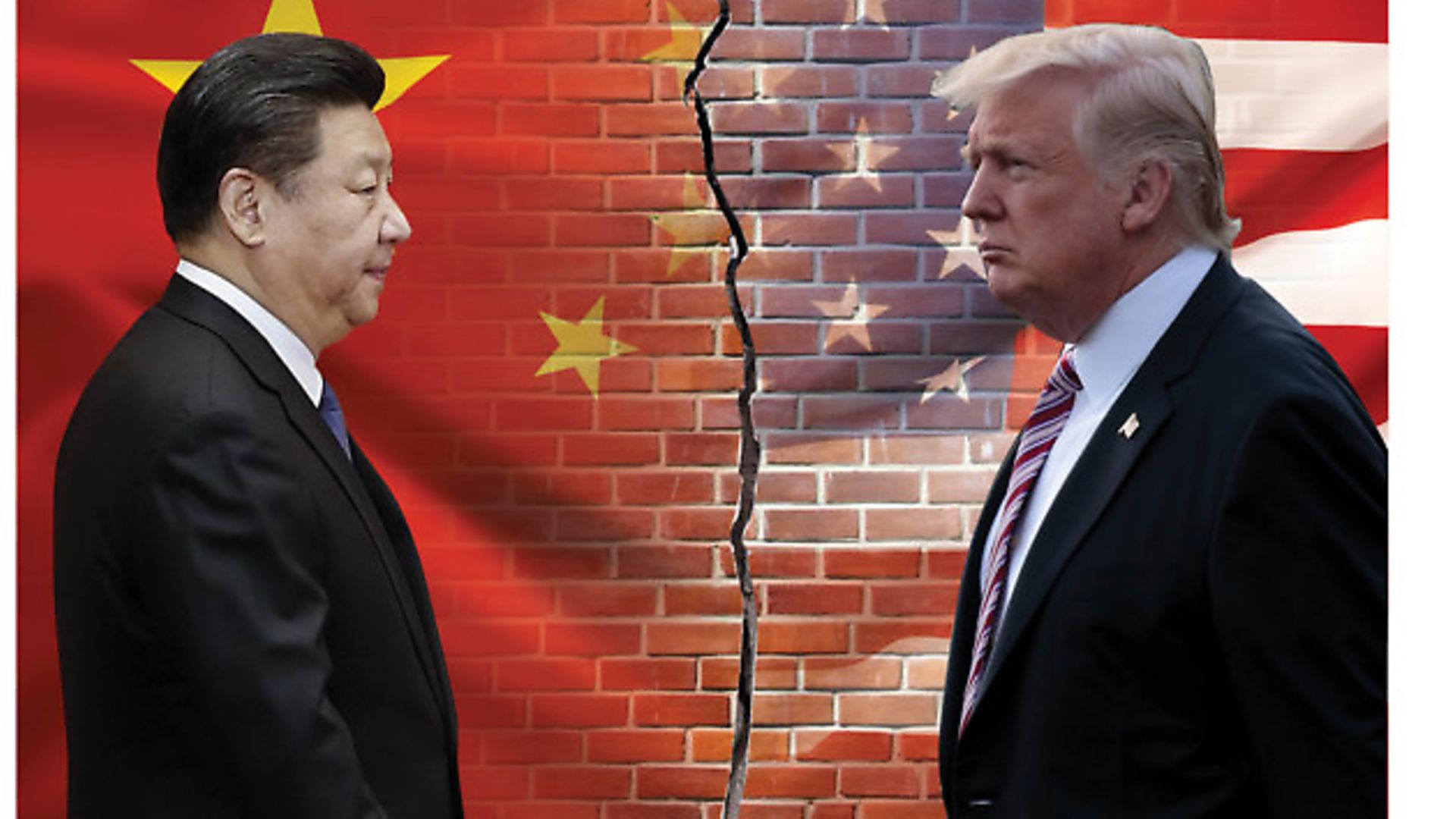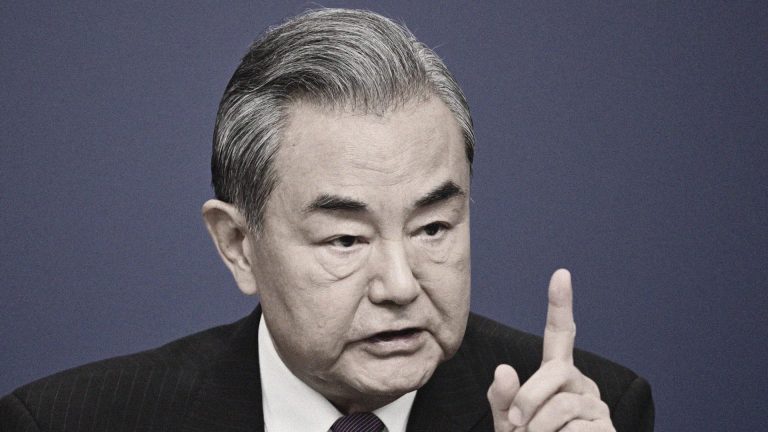
Forget what you’ve seen so far, the biggest tumult he has planned is relations with China. So what we can expect? How China might react and what it will mean for the world?
Late on the evening of the November 8 last year I landed in New York from the UK. My taxi driver dropped me off bleary eyed at the Hilton Midtown, where a phalanx of police and security guards blocked my way to check in. ‘Whatya doing?’ one asked. ‘Staying here a couple of nights, as a guest,’ I said. It didn’t sound a radical idea for what to do at a hotel. Passing me one final suspicious glance, he waved me through. ‘What’s going on?’ I said at the reception. The man there was more forthcoming. ‘Mr Trump’s in the building,’ he said.
Later that night, the outcome of the 2016 election became clear. Mr Trump was not just in the building, but in office. Elected 45th president of the US, the shock waves coursed across the world. The next day, I spoke at a China-related organisation in the city. The director there sighed wearily, saying that there had been a Chinese high level visitor due the next day who had had to cancel because of emergency meetings back at head office. Like the rest of the world, in Beijing Trump’s victory had been regarded as unlikely. They too had been banking on Clinton and ‘business as usual’. They too had no proper plan B to engage with this new eruption of populism in the developed world. And although, now he is ensconced in office, Trump is causing an eruption in plenty of other places, make no doubt about it, the greatest upheaval he has in his sights will be with China.
There is a simple reason for this. For all the chaotic, self-contradictory auto-babble that dominated his bitter election campaign, there was one consistent message – a better deal for the US. And there was, shadowy and often in the background, one persistent object of the idea that the US had got an increasingly unfair, asymmetrical deal from the wider world through organisations like the World Trade Organisation and the US-led rules based trade system – China.
In 2016, China was one of the greatest beneficiaries – perhaps the greatest – of the international trade and economic order. Standing now as the world’s second largest economy, it is still growing at over 6%. In Trump’s populist language, China, through control of its currency, and through protection of its own markets but exploitation of others that are open, like that of the EU and the US, has been able to take manufacturing jobs, build up a world class, dominant manufacturing sector, and create growth for itself – at, according to Trump, the expense of others.
Most economists would say this picture is a gross simplification. They would argue that the jobs that moved from the US to China were too low-paying to be sustainable in a developed economy. They would point to the powerful evidence that the American consumers have, in fact, been net gainers from cheap Chinese imports. The shelves of Wal-mart would be bare if there were no ships leaving the coasts of China laden with cheap goods for their customers to buy. But in a campaign, like in war, the battle between complex truth or simple lies almost always ends with the victory for the latter.
And on some level, Trump’s argument, or intuition, is not wholly false. Since joining the World Trade Organisation in 2001, after 14 years of negotiation, China has been a victor. It has used external competition to make its own enterprises leaner, meaner and better. It has done this without the need to open many of its key sectors. Foreigners cannot buy land in China. The services and finances sector, the greatest space for potential growth in the future because of the rise of the middle class in China, is heavily regulated and protected. Foreigners have to fight against an increasingly hostile environment where there are plenty of visible, and invisible, barriers to entry.
Internationally, too, China has gained from a peaceful international environment largely underpinned by US hard power. Since 1979, it has experienced no major conflicts. It has been able to enjoy the benefits of a rules based, stable, predictable international economic and services system, engaging with it pragmatically, and yet not fully signing up to its underlying values. China is driven under Xi Jinping by the mission to create a rich, strong, and powerful country, which is dominant in the region. This is predicated on the sustainability of the one party state.
The earlier theories by the US and EU and others that engagement in the economic sphere with China from the 1980s would eventually lead to political reform have, so far, been proved wrong. Engagement has given the one party state support in its strongest pillar of legitimacy – economic prowess. But it has shown almost zero evidence of leading to a change of system in the country. Some wonder whether tactical engagement along these lines wasn’t a mistake in the first place. As one military official from a country in the region barked at me at a conference some months back, ‘Why did we just sit aside and let China get this powerful?’
There are all sorts of complex questions about whether, in fact, the West had any choice but to engage in the way it has. As Richard Nixon said as early as 1968, how can one run a global system which attempts to disenfranchise a fifth of humanity? And in any case, the choice of the Chinese for how they are governed is, in the end, surely up to them. With what has happened in the Middle East since 2003 in particular, who can say with any real conviction any more that trying to foist idealistic democratic models on a country not yet ready is going to work well? The pragmatists amongst us would just have to sigh and say the most we can hope from China is stability, and partnership in some areas we need to work together. Values will just have to wait for a day long in the future when we have more common ground to talk to each other.
Despite this, the desire in the US over the last two decades has always wanted to see a China emerge which looked more like them – democratic, pluralistic, free. Instead, they have ended up with a powerfully militarised, economically strong, increasingly nationalistic and assertive ‘frenemy’ (neither friend nor enemy), one whose current leadership vehemently reject what they call western universalist values like multi-party democracy. In ways which were never expected before, China seems more capable then ever of rewriting the laws of modernity and creating a powerful, capitalist looking economy, but one where one party holds a monopoly on power and where there are no elections.
Previous American presidents from Clinton to Bush to Obama have subscribed eventually to different versions of engagement. They have often acted like they had no choice. They have continued to provide expensive security in the Asian pacific region, through their vast, technologically superb naval capacity. For this, in Trump’s narrative, they have received precisely what? An ungrateful Philippines, an Australia that signs deals that sent refuges to the US rather than Australia (the subject of Trump’s already infamous spat with Australian PM Malcolm Turnball), a South Korea where the continued stationing of US troops on the peninsular causes visceral hatred, and a Japan stuck in its own endless historic arguments with China.
The crowning indignity is China itself, sitting atop a booming economy, provoking with its maritime claims in the South and East China Sea, and which seems to cock a snook at the US by saying on the one hand it appreciates the US security guarantees in the region, at the same time as it proceeds to pick them apart where it suits it.
On one level of reality, therefore, the Trump China doctrine might be a valid story to tell. It betrays the ways in which the US president subscribes to a story book, black and white, villain and hero view of the world. It makes highly complex things very simple, and, in an age in which we are all overwhelmed by information, news, analysis, it delivers the alchemical gold of clarity. There is one huge problem with this viewpoint, however, despite its various merits, and that is that it is almost certainly wrong.
China might look strong internationally. But it is driven by one of the most complex, high risk domestic transitions the world has ever seen. And, for sure, political reform along the lines once dreamed of by some in the West has not happened – yet. China probably will never become the nice democracy once hoped for. But let’s be frank, as 2016 showed, nor have we.
What we can be sure of is that it will become something different to what it is now. Walking away, as Trump seems to want to do now, means, ironically, at the moment when China really could be influenced, and wants influence, our voices are silent at the table.
Already, on climate change, on free trade, on non-proliferation, and on a different vision of globalisation, China is starting to speak. Trump might well have forced this – and in that sense, has already had a welcome effect. China’s voice needs to be heard. It needs to be forced to spell out a vision of development that is about more than just relentlessly promoting its own interest.
It needs to move, quickly, away from the national mindset default of the recent past – of China being a small, weak, victim that needs to be left on its own. That kind of message just doesn’t work anymore. China has been a global power for a while. It now has to start sounding like one, and acting like one.
Will there be conflict between the US and China? Trump’s headless, impulsive words have significantly increased this possibility. Dabbling with the One China policy and with Taiwan might seem like a good way, if you were a business man, in unsettling your opponent before honing in on a final deal.
But as Beijing said when Trump started to rant about this issue on Twitter, Taiwan is not up for negotiation – or at, least, not in this way. That doesn’t mean that Beijing has to find a totally different way to deal with this issue. Its current posture is on a hiding to nothing. But for the US to try to deal with this most emotive of all issues for China means almost immediate loss of control, in a maelstrom of emotions and indignant anger. No one can do any deal when they and their opponent are screaming at the top of the voices and not listening. That is what risks happening at the moment.
A rational Trump China doctrine would simply focus relentlessly on getting a better economic deal. China is a global power. It needs to be a global economy, and that means one that is open, and more rules-based and fair. It means having a properly convertible currency at some point, and proper rule of law.
For the West it means, in many ways, getting precisely the things we always wanted from engagement, without trying to hit the big political issues. We no longer have solutions to those. Why should China? We just want to see more justice, more fairness and more predictability from it. If China, through a one-party state, can ultimately deliver that, then fine. Ironically, as Trump has proved, hard and fast rules in politics can be quickly rewritten.
And China’s possible response to Trump? It now has space it never dreamed of, and a once in a lifetime opportunity to prove that it really is a global power. Suddenly the world is looking to Beijing not Washington to talk sense on climate change, and on free trade improvements. Suddenly Xi Jinping seems the most impressive international leader of a major country – not the current inhabitant in the White House. Trump has looked shocking to China so far – but he could be providing the greatest inspiration yet for a China that looks, sounds, and feels like a proper member of the international system and one that can be accepted more on its own terms.
Kerry Brown is Professor of Chinese Studies and director or the Lau China Institute at King’s College, London








